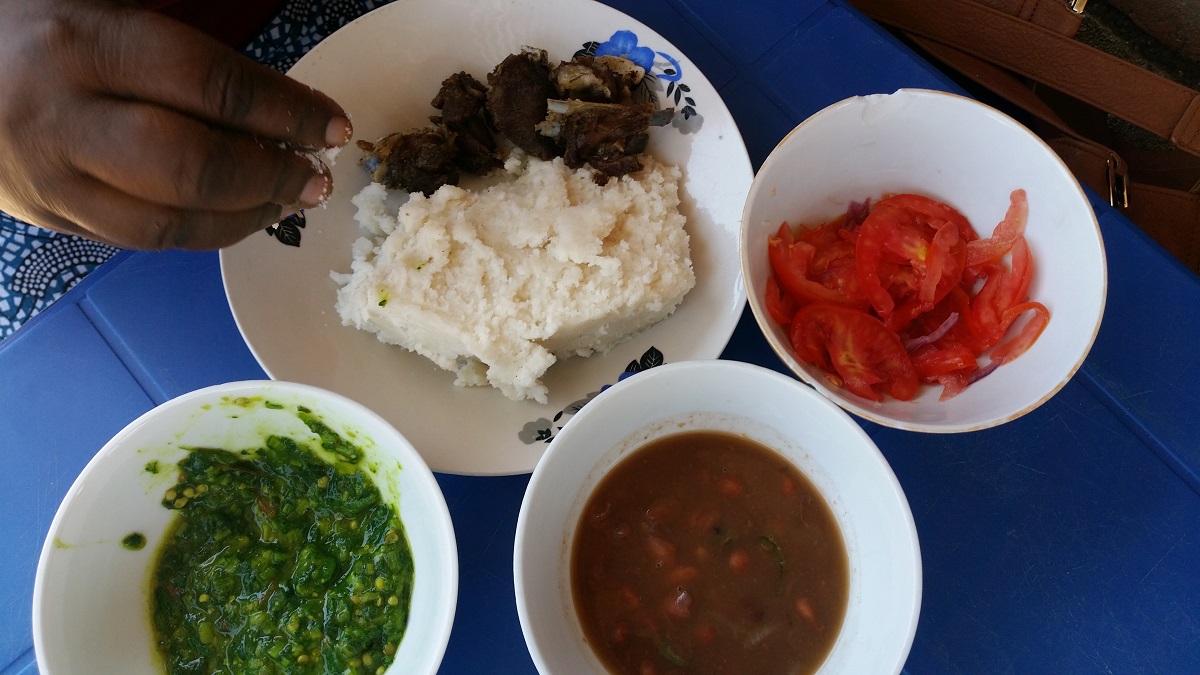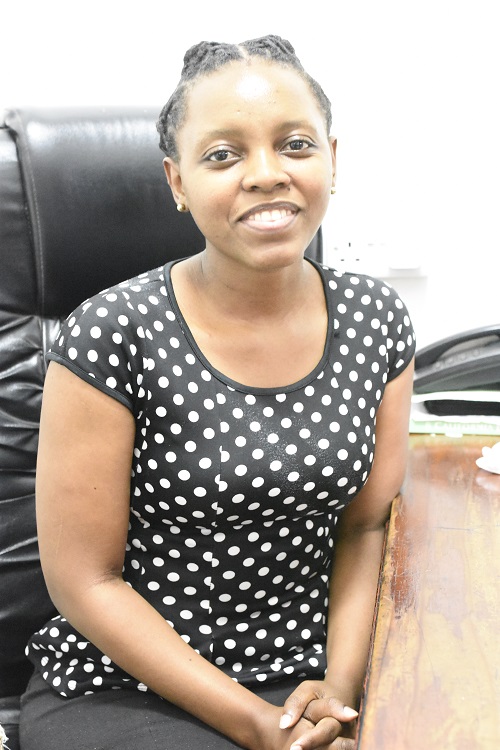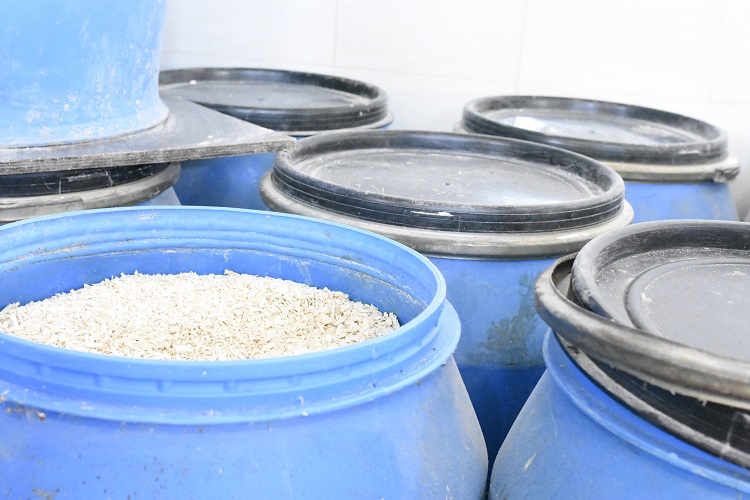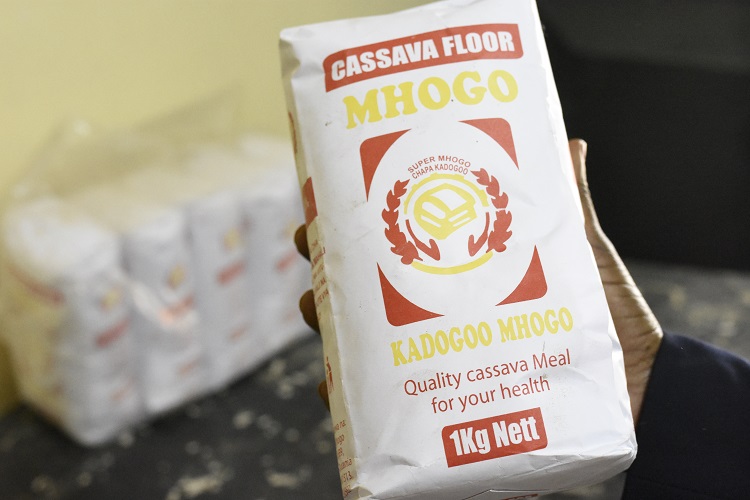
Across east Africa, a favoured staple is a mixture of cereal flour and water, cooked to make a versatile stiff porridge or dough that is eaten with a range of dishes. In Tanzania it’s known as ugali, and is normally made with maize meal. CAVA2 has been working along the value chain to add cassava to the traditional mix, creating new opportunities for farmers and business.
“It tastes better than corn,” explains Happiness Matafu, Assistant to the Director of Kadogoo Sembe, a small–medium flour milling factory in Dar es Salaam, where business has been growing steadily since the introduction of a new product, High-Quality Cassava Flour (HQCF). “Cassava is smooth and it’s stickier than corn, which is a good thing in ugali. And our customers believe it’s much more nutritious and it’s easily available and a lot more affordable.”
 CAVA2 guided Kadogoo Sembe through the HQCF process, firstly by linking them with the farmers supplying cassava. “Having a project like CAVA that connects you to the farmers directly, that’s a huge plus, explains Happiness, “because the middlemen take their own cut on the prices, and also sometimes you have to deal with what you get – you don’t have much of a choice with the quality.”
CAVA2 guided Kadogoo Sembe through the HQCF process, firstly by linking them with the farmers supplying cassava. “Having a project like CAVA that connects you to the farmers directly, that’s a huge plus, explains Happiness, “because the middlemen take their own cut on the prices, and also sometimes you have to deal with what you get – you don’t have much of a choice with the quality.”
CAVA2 connected Kadogoo Sembe with around 70 farmers from different locations in Tanzania, including Mtwara, Tandahimba, Newala, Masasi and Kibiti, who work in groups of 10–25 members. After CAVA2 training in good agronomic practices and with access to improved varieties, farmers are producing good-quality cassava, with average yield rising from 11 to 17 tonnes per hectare.
The farmers work together with Community Processing Groups that process High-Quality Cassava Grits or Chips, which they sell directly to Kadogoo Sembe. “They’re really reliable,” says Happiness, “Any time we need cassava, we can just make a phone call and get the delivery of the cassava chips, that is a huge benefit.” Farmers have benefitted too, as market availability means they’ve been able to increase production, contribute to their family income and build better houses.
 Happiness describes the good relationship they have with the farmers. “They deliver on time, and they bring good quality. We measure the cassava and we do our calculations. They give us their price and we pay them right away.” The chips are usually kept for 3–6 months, “but since demand is high,” says Happiness, “we keep finishing our stock. We’ve never had any complaint from our customers.”
Happiness describes the good relationship they have with the farmers. “They deliver on time, and they bring good quality. We measure the cassava and we do our calculations. They give us their price and we pay them right away.” The chips are usually kept for 3–6 months, “but since demand is high,” says Happiness, “we keep finishing our stock. We’ve never had any complaint from our customers.”
CAVA2 trained the company in cassava preparation and storage, in milling the chips, and then mixing corn with cassava, to make a whole new product. “We worked with them in coming up with the recipe for the corn and cassava together in their labs,” explains Happiness, “It worked really well.”
Since being trained in cassava processing by CAVA2, the company has witnessed how their growing market – mostly individuals and retailers in the local area in Dar es Salaam – is consuming more cassava. “Everyone here makes ugali,” Happiness reminds us, reporting, “they prefer cassava to corn, though the majority use more corn and a bit of cassava. I learnt that we can introduce different products to our customers, and it did very well, so that’s a new way of thinking.”
 And the company itself has grown, with new buildings, more staff to prepare the cassava packaging, more customers for cassava, and more sales. “When business grows, we grow!” exclaims Happiness, “In fact, CAVA have connected us to restaurants which is a huge, a good connection, because restaurants make these products on a daily basis, so that’s a reliable customer.”
And the company itself has grown, with new buildings, more staff to prepare the cassava packaging, more customers for cassava, and more sales. “When business grows, we grow!” exclaims Happiness, “In fact, CAVA have connected us to restaurants which is a huge, a good connection, because restaurants make these products on a daily basis, so that’s a reliable customer.”
“The market demands cassava,” says Happiness, “so we decided to make sure we are satisfying the market according to the demand.” Through support from CAVA2, and a steady supply of cassava from the farmers, Kadogoo Sembe is now expanding their market to many parts of the country, from Arusha to Zanzibar, Dodoma and Mombo. Happiness is certain that, once you’ve tried ugali with the cassava mix, you won’t want to go back to the traditional recipe!
The CAVA2 project ran from 2014–2019 with the aim of improving the lives of smallholder farmers across five countries in Africa: Nigeria, Ghana, Uganda, Tanzania and Malawi. Supported by the Bill & Melinda Gates Foundation, CAVA2 was led by Nigeria’s Federal University of Agriculture, Abeokuta (FUNAAB) and NRI. The project’s focus was to develop the value chains of cassava, the tropical root crop that’s a staple food for millions of people across Africa. Once harvested, the crop needs to be processed quickly, for fresh cassava roots begin to deteriorate 72 hours after harvest. Other challenges include increasing yield, managing pests and diseases, and transporting the bulky roots by road.

